Are you in the market for a new digital SLR camera? You may have heard of the Canon EOS 60D – it’s widely regarded as one of the best cameras available. But is it a full-frame or something else? That’s what we’re here to find out today!
In this blog post, we’ll take a closer look at what exactly makes up a full-frame camera, and whether or not the Canon EOS 60D fits into that category. So if you’re looking for an expert perspective on this popular DSLR model, keep reading!
Is the Canon EOS 60D Full-Frame?
The answer to this question is no – the Canon EOS 60D is not a full-frame DSLR camera. Instead, it falls into the category of APS-C sized cameras.

The main difference between APS-C and full-frame DSLRs when it comes to image quality is that a full-frame model will generally produce sharper images with better low-light performance. However, the Canon EOS 60D has proven itself to be quite capable in this regard despite being an APS-C camera.
In terms of lenses, APS-C cameras are compatible with both full-frame and crop lens systems. However, you’ll need to bear in mind that when using a full-frame lens on an APS-C camera, the effective focal length will be 1.6x longer than it would be on a full-frame camera due to the crop factor.
What Type Of Camera Is The Canon EOS 60D?
The Canon EOS 60D is an APS-C sized digital SLR camera that was released in 2010. It features a 18-megapixel CMOS sensor, 1080p HD video recording capabilities, and an impressive 7.5 frames per second continuous shooting speed.

The camera also comes with a 3” Vari-angle LCD monitor which makes it easier to shoot from creative angles.
What Is The Crop Factor On The Canon 60D?
The crop factor on the Canon EOS 60D is 1.6x, meaning that a 50mm lens on this camera would effectively be like using an 80mm lens on a full-frame body. This can be helpful when shooting more distant subjects, as it will magnify your field of view and make them appear larger in the frame than they would with a full-frame camera.
Is The Canon 60D A DSLR Or A Mirrorless Camera?
The Canon EOS 60D is a digital SLR (DSLR) camera. DSLR cameras use an optical viewfinder to allow you to see what the lens sees before actually shooting, as opposed to mirrorless cameras which rely on an electronic display for framing your shots.

What Lenses Are Compatible With The Canon 60D?
The Canon EOS 60D is compatible with both full-frame and crop lens systems. You can use lenses from any of the EF, EF-S, or EF-M mount categories on this camera body.
However, bear in mind that when using a full-frame lens on an APS-C camera, the effective focal length will be 1.6x longer than it would be on a full-frame camera due to the crop factor.
Different Types Of Canon Cameras
The Canon EOS 60D is part of the company’s mid-range Digital SLR lineup. Canon also makes a wide variety of other models, ranging from entry-level cameras to professional options such as the 1D X Mark III.
There are also mirrorless cameras available from Canon, including their popular EOS M series.

Canon DSLRs Vs Mirrorless Cameras
Which type of camera is best for you ultimately depends on your individual needs. DSLRs have the advantage of an optical viewfinder, which makes it easier to compose shots in certain situations.

FAQ
Is the Canon 60D full-frame?
No, the Canon EOS 60D is an APS-C sized camera and not a full-frame model.
What type of camera is the Canon 60D?
The Canon EOS 60D is an APS-C sized digital SLR camera that was released in 2010. It features a 18-megapixel CMOS sensor, 1080p HD video recording capabilities, and an impressive 7.5 frames per second continuous shooting speed.
What lenses are compatible with the Canon 60D?
The Canon EOS 60D is compatible with both full-frame and crop lens systems. You can use lenses from any of the EF, EF-S, or EF-M mount categories on this camera body.
However, bear in mind that when using a full-frame lens on an APS-C camera, the effective focal length will be 1.6x longer than it would be on a full-frame camera due to the crop factor.
Is The Canon EOS a full frame camera?
No, the Canon EOS is not a full-frame camera. It falls into the category of APS-C sized cameras. APS-C stands for Advanced Photo System Type-C and is essentially a crop sensor format that captures images with smaller dimensions than those created by full-frame digital SLR cameras.
Is the Canon 60D an APS-C camera?
Yes, the Canon EOS 60D is an APS-C sized camera. It features a 18-megapixel CMOS sensor, 1080p HD video recording capabilities, and an impressive 7.5 frames per second continuous shooting speed.
The crop factor on the Canon EOS 60D is 1.6x, meaning that a 50mm lens on this camera would effectively be like using an 80mm lens on a full-frame body.
Are Canon cameras mirrorless?
Yes, Canon also makes a wide variety of mirrorless cameras such as their popular EOS M series.
Mirrorless cameras rely on an electronic display for framing your shots instead of the optical viewfinder found in DSLR cameras. Which type of camera is best for you ultimately depends on your individual needs.
Is the Canon 60D semi pro?
The Canon EOS 60D is considered a mid-range DSLR camera. It’s not quite as powerful or feature-rich as the professional 1D X Mark III, but it can still produce great images and videos with its 18-megapixel CMOS sensor, 1080p HD video recording capabilities, and 7.5 frames per second continuous shooting speed.
What is the crop factor on the Canon 60D?
The crop factor on the Canon EOS 60D is 1.6x, meaning that a 50mm lens on this camera would effectively be like using an 80mm lens on a full-frame body. This can be beneficial when shooting more distant subjects, as it will magnify your field of view and make them appear larger in the frame than they would with a full-frame camera.
What type of lenses can be used on the Canon 60D?
The Canon EOS 60D is compatible with both full-frame and crop lens systems. You can use lenses from any of the EF, EF-S, or EF-M mount categories on this camera body.
However, bear in mind that when using a full-frame lens on an APS-C camera, the effective focal length will be 1.6x longer than it would be on a full-frame camera due to the crop factor.
What is the maximum ISO on the Canon 60D?
The maximum native ISO of the Canon EOS 60D is 6400, which can be expanded up to 12800. This high ISO performance allows you to capture images in low light conditions with minimal noise or grain.
What are some alternative cameras to the Canon 60D?
Some popular alternatives to the Canon EOS 60D include the Nikon D7100, the Sony A6600, and the Panasonic Lumix GH5s. Each of these cameras offer their own unique features and specs that may better meet your individual needs than what is offered by the Canon 60D.
How do I connect my Canon 60D to a computer?
You can connect your Canon EOS 60D to a compatible desktop or laptop computer using the included USB cable. Once connected, you can transfer images and videos from your camera directly to the computer for editing and storage.
Alternatively, you can also use an SD memory card reader or external hard drive to quickly move files between your camera and computer.
Can the Canon 60D be used for video?
Yes, the Canon EOS 60D can be used to record videos in 1080p HD resolution at up to 30 frames per second. It also has a range of other features such as full manual control over exposure settings, audio input, and focus peaking that make it suitable for more professional video production.
What type of batteries does the Canon 60D use?
The Canon EOS 60D uses a rechargeable LP-E6 lithium-ion battery. This battery is rated for up to 730 shots on a single charge, giving you plenty of power to keep shooting all day without needing to change the battery.
How long will a battery last on the Canon 60D?
The LP-E6 lithium-ion battery that comes with the Canon EOS 60D is rated for up to 730 shots on a single charge. This should give you plenty of power to keep shooting all day without needing to change the battery. However, it’s always a good idea to carry an extra battery just in case.
Does the Canon 60D have a built-in flash?
Yes, the Canon EOS 60D has a built-in pop-up flash that can be used to add light to your images when shooting in low-light conditions. The maximum guide number for this flash is 12 metres (ISO 100).
Why should I choose the Canon 60D?
The Canon EOS 60D is a great camera for those looking to upgrade from an entry-level DSLR and start exploring more advanced photography techniques.
It offers impressive image quality, excellent video capabilities, fast continuous shooting speed, and other features that make it suitable for both beginners and experienced photographers alike.
Plus, with its wide range of compatible lenses, you’re sure to find something that meets your creative needs.
Does the Canon 60D have Wi-Fi?
No, the Canon EOS 60D does not have built-in Wi-Fi capabilities. However, you can purchase an optional USB dongle that will allow you to transfer images and videos wirelessly from your camera to a compatible device such as a smartphone or tablet.
Do I need an external microphone for the Canon 60D?
No, the Canon EOS 60D has a built-in stereo microphone that can be used to record audio while shooting video. However, if you’re looking for better sound quality or want to capture more distant subjects, then an external microphone may be beneficial.
Does the Canon 60D have a touchscreen LCD?
No, the Canon EOS 60D does not have a touchscreen LCD. Instead, it features an optical viewfinder and a 3-inch articulating LCD for composing your shots.
What are some of the accessories I might need for my Canon 60D?
Some of the most essential accessories you may need for your Canon EOS 60D include memory cards, an extra battery, a tripod or monopod, a camera bag or backpack, and lens filters. You may also want to consider buying an external flash or microphone depending on your intended use.
Do I need any special software to use with the Canon 60D?
No, you don’t need any special software to use your Canon EOS 60D. You can edit and manage your photos and videos using the included Digital Photo Professional 4 or other compatible software such as Adobe Lightroom or Photoshop.
Does the Canon 60D have image stabilisation?
No, the Canon EOS 60D does not have built-in image stabilisation. However, you can purchase lenses with optical image stabilisation to help reduce camera shake and blur in your photos.
Can I use a remote shutter release with the Canon 60D?
Yes, you can use a compatible remote shutter release with the Canon EOS 60D. This will allow you to trigger the shutter from a distance, making it easier to take long exposure shots or capture fast-moving subjects without having to touch the camera.
Does the Canon 60D have any special features?
Yes, the Canon EOS 60D has several unique features that make it stand out from other entry-level DSLRs. It offers full manual control over exposure settings, multiple shooting modes to choose from, in-camera image processing functions, and various creative filters.
Additionally, the camera also has an HDR mode which can help you capture detailed photos even in difficult lighting conditions.
Do I need a special lens for the Canon 60D?
No, the Canon EOS 60D is compatible with all EF and EF-S lenses. This means that you can use any of the lenses in the Canon lineup or third-party options from manufacturers such as Tamron and Sigma.
Useful Video: Canon 60D in 2022, worth buying? | Throwback Tech
Conclusion
Ultimately, the Canon EOS 60D is an excellent midrange DSLR camera that offers many features found in high-end cameras. It’s an ideal option for anyone looking to get into photography or filmmaking without spending a fortune on professional-level equipment.
So if you love taking photos and videos or you just want to explore the possibilities of cinematography without breaking the bank, then the Canon EOS 60D is a great choice. Not only does it offer full frame capabilities, but it also offers lots of control and customization options so you can tweak your image until it looks exactly how you want it. Whether you’re a beginner or a professional, this camera can provide beautiful results with its fantastic array of features.
Furthermore, if you decide to start editing videos instead of stills, the price makes this camera even more attractive since it is compatible with most editing software. The Canon EOS 60D has something for everyone – photographers of every budget and skill level will find something that suits their needs with this highly capable DSLR.
References:
- https://www.photographypursuits.com/is-canon-eos-60d-full-frame/

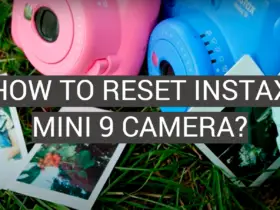
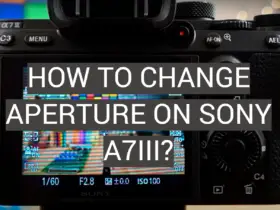



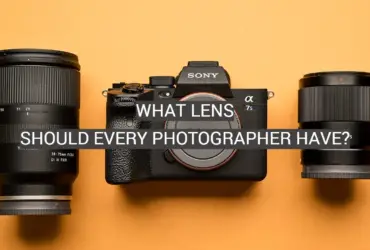
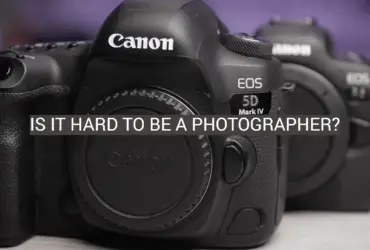
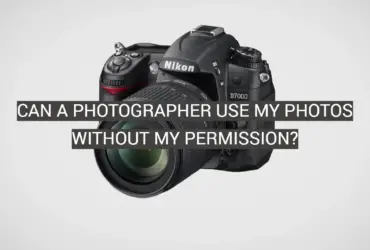



Leave a Reply